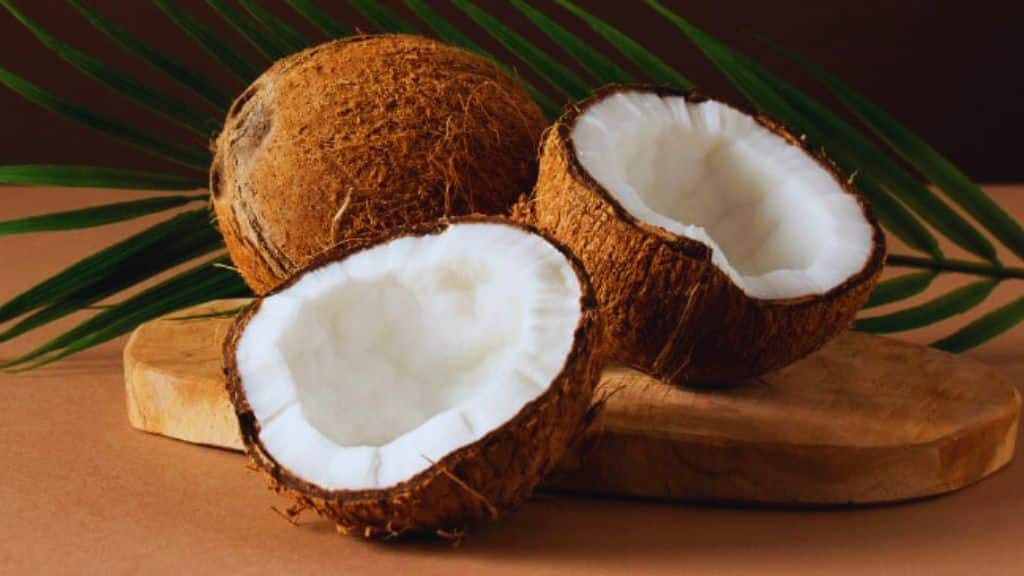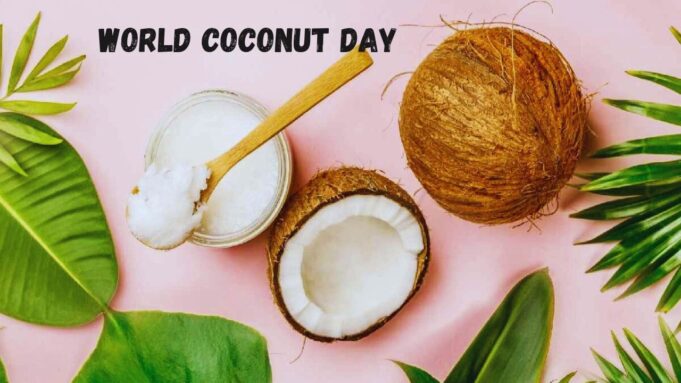World Coconut Day is celebrated every year on September 2 to highlight the nutritional, economic, and cultural importance of one of the world’s most versatile plants. Recognized by the Asian and Pacific Coconut Community (APCC), this day honors the coconut’s role in providing food, drink, cosmetics, construction materials, and sustainable products to communities across tropical regions.
From its nutrient-rich water to its fibrous husk, every part of the coconut serves a valuable purpose. The celebration also supports awareness of coconut farming, trade, and innovation that benefit millions globally. In this article, I will share the history, uses, health benefits, and meaningful ways to celebrate World Coconut Day.
When is World Coconut Day 2025?
World Coconut Day in 2025 will be observed on Tuesday, September 2. This global celebration takes place on the same date each year and is recognized across tropical countries where coconuts are a vital agricultural product. The day was established to highlight the importance of coconuts in nutrition, culture, and the economy, especially in Asia and the Pacific regions.
Events on this day range from community festivals and farmer recognition programs to culinary showcases and educational campaigns promoting coconut’s diverse uses. The fixed date ensures that farmers, businesses, and communities can prepare activities that both honor tradition and support sustainable coconut production.
What is the History of World Coconut Day?
World Coconut Day was established in 1998 by the Asian and Pacific Coconut Community (APCC) to promote the significance of coconuts in member countries. The first official celebration took place in 2009, coinciding with the anniversary of the APCC’s founding. The observance also aims to raise awareness about coconut farming in economic development and food security.
Historically, coconuts have been cultivated for thousands of years, spreading from their origins in Southeast Asia to Africa, the Pacific Islands, and the Americas through seafaring trade. Today, the event includes annual themes, such as the 2020 theme “Invest in Coconut to Save the World,” encouraging innovation and sustainability in the coconut industry.
Related: National Acadian Day
Why is World Coconut Day Important?
World Coconut Day is significant because it highlights the coconut’s multiple roles in daily life, culture, and the global economy. Nutritionally, coconuts provide fiber, vitamins, minerals, and healthy fats, making them valuable in both traditional and modern diets. Economically, they support the livelihoods of millions of farmers, especially in tropical regions.
Environmentally, coconuts are a zero-waste crop — every part of the plant has a use, from food and oil to building materials and natural fiber products. The day also brings attention to sustainable farming practices and fair trade, helping to protect coconut-producing communities from economic and environmental challenges.
How to Celebrate World Coconut Day?
There are many ways to participate in World Coconut Day:
- Cook with coconut — Prepare dishes like coconut curry, coconut shrimp, or coconut rice.
- Make coconut-based products — Create DIY skincare with coconut oil or crafts using coconut shells.
- Host a themed event — Organize a tropical-themed gathering with coconut-based food and drinks.
- Learn and share — Attend educational talks on coconut farming or share coconut facts online using #WorldCoconutDay.
- Support coconut farmers — Buy products sourced from fair-trade coconut producers.
These activities not only celebrate the fruit but also promote its cultural and economic importance.
Read More: Cherry Popover Day
What Are the Most Popular Uses of Coconut?

Coconuts are prized for their versatility. Every part of the plant serves a purpose:
| Coconut Part | Common Uses |
| Coconut Water | Hydration, sports drinks, smoothies |
| Coconut Meat | Cooking, baking, snacks, coconut milk, and cream |
| Coconut Oil | Cooking, skincare, hair care, soap-making |
| Coconut Husk | Mats, brushes, rope, biofuel |
| Coconut Shell | Bowls, crafts, charcoal |
| Coconut Leaves | Roofing, weaving, decorative items |
| Coconut Trunk | Construction materials, furniture |
This wide range of uses has made coconut cultivation essential to many communities for food, trade, and sustainable living.
What Are the Health Benefits of Coconut?
Coconuts are nutrient-rich, offering several health benefits when consumed in moderation. Coconut water is a natural source of electrolytes like potassium and sodium, making it an effective hydration drink. The meat contains dietary fiber that supports digestion, while coconut oil provides medium-chain fatty acids, which can be used as a quick energy source.
Its antioxidant properties help support immune function, and traditional medicine systems have used coconut products for skin and hair care. While coconut oil is high in saturated fat, moderate intake within a balanced diet can provide both culinary and potential wellness benefits.
Read More: Kadooment Day 2025
World Coconut Day Activities for Schools and Communities
Educational and community-focused events are a great way to celebrate World Coconut Day. Schools can organize classroom lessons on coconut cultivation, its role in the economy, and its environmental benefits. Cooking demonstrations can introduce students to coconut-based dishes from around the world.
Communities can host coconut fairs featuring local farmers, product stalls, and craft workshops using coconut shells and husks. Competitions, such as coconut recipe contests or art made from coconut materials, encourage creativity while highlighting sustainability. These activities strengthen local awareness of the importance and connect consumers with the people who produce it.
5 Interesting Facts About Coconuts
- Botanically, the coconut is a drupe — a fruit, seed, and nut all in one.
- Coconuts can float across oceans, allowing them to spread naturally to new coastlines.
- The world’s largest coconut producers are Indonesia, the Philippines, and India.
- The water inside a young coconut is sterile and has been used in emergencies as an IV fluid.
- Coconut palms can produce fruit for up to 80 years, making them a long-term agricultural resource.
Read: Festival Monday 2025
World Coconut Day Dates (2025–2030)
| Year | Date | Day |
| 2025 | September 2 | Tuesday |
| 2026 | September 2 | Wednesday |
| 2027 | September 2 | Thursday |
| 2028 | September 2 | Saturday |
| 2029 | September 2 | Sunday |
| 2030 | September 2 | Monday |
Frequently Asked Questions (FAQs) About World Coconut Day
World Coconut Day celebrates the versatility and cultural importance of coconuts worldwide. In this FAQ guide, we answer common questions about the day’s origins, traditions, health benefits, and fun ways to enjoy coconuts during the celebration.
What is the difference between World Coconut Day and National Coconut Day?
World Coconut Day (September 2) is recognized globally, especially in APCC member countries, while National Coconut Day (June 26) is primarily celebrated in the United States.
Is a coconut a fruit, nut, or seed?
It is technically all three — botanically classified as a drupe.
Which countries produce the most coconuts?
Indonesia, the Philippines, and India lead global production.
Are coconuts eco-friendly?
Yes. Coconut palms are a zero-waste crop, and every part of the plant can be used for food, crafts, or industry.
How should fresh coconuts be stored?
Keep whole coconuts at room temperature for up to a week or refrigerate for a longer shelf life.
To Know More: National Blueberry Popsicle Day
Conclusion
World Coconut Day, held every September 2, is a celebration of one of nature’s most versatile and valuable crops. From its nutrient-rich water and meat to its husks and leaves, the coconut supports food, culture, industry, and sustainability. The observance, initiated by the Asian and Pacific Coconut Community, reminds us of the livelihoods it sustains, the health benefits it offers, and the creative ways it can be used.
Marking the day with educational activities, culinary creations, and community events strengthens appreciation for this tropical resource and promotes responsible, fair, and sustainable coconut production worldwide.















